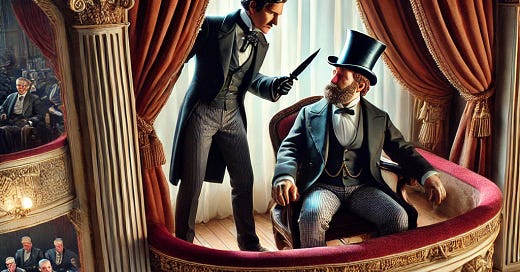Summary of Article at this Link
In his essay, Dr. Robert Malone draws a parallel between the 1960s political assassinations, particularly the assassination of President John F. Kennedy, and the recent attempt on the life of former President Donald Trump. He suggests that both events are tied to a covert campaign by what he describes as the "deep state" or rogue elements of the U.S. government. This shadow government, according to Malone, aims to eliminate political figures who threaten their control, and has been engaging in psychological warfare (PsyWar) against the American people since JFK's assassination.
Malone argues that the official narratives surrounding these events, such as the Warren Commission's conclusion that Lee Harvey Oswald acted alone in Kennedy's assassination, are false. He cites forensic evidence and studies, like those by Dr. David Mantik, that contradict the government's findings, indicating that multiple shooters were involved and that a cover-up occurred. He also references books and testimonies that challenge the official accounts, portraying the JFK assassination as a coup d’état orchestrated by the intelligence community.
Malone warns that this same apparatus continues to wield power today, using sophisticated tools like the internet to censor and manipulate information. He concludes by questioning whether American democracy was effectively lost with JFK’s assassination and expresses skepticism about whether the government can be trusted on such matters.
Dr. Robert Malone argues that the U.S. government, or elements within the deep state, may be complicit in the recent assassination attempt on Donald Trump. He claims that at the very least, state-sponsored media and government actors have promoted dangerous rhetoric portraying Trump as a threat to democracy, which could have influenced the would-be assassin, Ryan Routh. Malone also raises the possibility that an "alphabet agency" (e.g., the CIA) might have been directly involved in the assassination attempt, though he acknowledges that this is currently speculative.
Malone highlights how propaganda from corporate media and government actors may have radicalized Routh, particularly regarding his zealous support for the Ukraine war. Citing comments by Jimmy Dore, Malone explains that Routh appears to have been heavily influenced by pro-war narratives, which led him to view Trump’s opposition to the war as morally wrong and worthy of assassination. Malone mentions that Routh appeared in two propaganda videos, including one for the Ukrainian Azov Battalion, suggesting a possible connection between the CIA and Routh’s radicalization, though no direct evidence of CIA involvement is presented.
Malone suggests that the intelligence community is deeply concerned about a potential second Trump presidency, as it could threaten the existing world order. He speculates that Routh may be silenced or discredited by being labeled mentally ill and warns that Routh could face an untimely death in custody, similar to Jeffrey Epstein.



